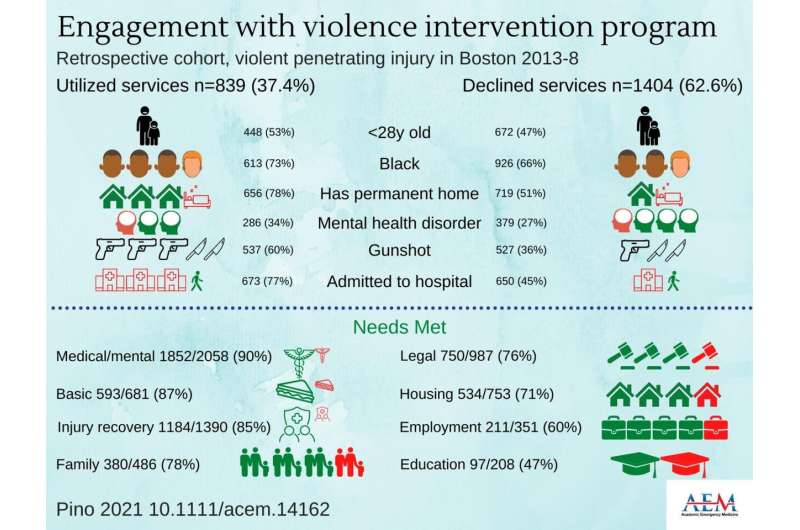Hospital-based violence intervention program engages vulnerable populations

A Boston violence intervention advocacy program is effectively engaging the client population that hospital-based violence intervention programs (HVIPs) have been designed to support. This is the conclusion of a study titled Boston Violence Intervention Advocacy Program: Challenges and Opportunities for Client Engagement and Goal Achievement, to be published in the March 2021 issue of Academic Emergency Medicine.
According to the study, HVIPs should consider which types of client needs prove most challenging to address and which novel strategies will engage vulnerable populations not typically targeted by intervention programs. These results speak to the difficulties of program attrition and the complexities of altering the life course for victims of violence.
The lead author of the study is Elizabeth C. Pino, Ph.D., from the Department of Emergency Medicine and the Boston Violence Intervention Program at Boston Medical Center.
Commenting on the study is Tolulope Sonuyi, MD, an emergency medicine physician and assistant professor for the Detroit Medical Center and Wayne State University, respectively, who specializes in health-centered intervention and prevention strategies around community violence.
"With the increased cognizance of the impact that social determinants of health (SDOH) have on the health of emergency department patients, this is a timely study that nicely demonstrates the influence that critical SDOH domains play in the role of the chronic recurrent disease process of community violence. Furthermore, this study provides a framework to understand the impact that patient characteristics have on the uptake of therapeutic intervention and highlights the challenges that come with addressing the upstream factors of complex biopsychosocial disease processes such as community violence. This is important in informing efforts on a systemic and structural level so that more targeted, efficient, and customized strategies may be considered."
More information: Elizabeth C. Pino et al, Boston Violence Intervention Advocacy Program: Challenges and Opportunities for Client Engagement and Goal Achievement, Academic Emergency Medicine (2020). DOI: 10.1111/acem.14162



















